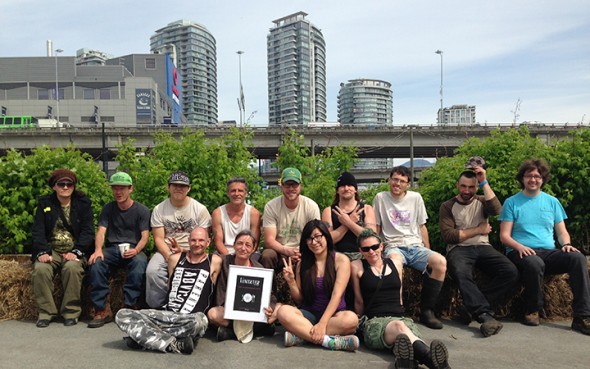When did you know that you wanted to work in food?
When I was a kid, I used to pick zucchini for my cousin Rob on his farm and he'd pay me in maple candy, which was the best thing ever. I remember him letting me help eviscerate a chicken when I was probably about seven, so when I turned 14 I asked him if he'd hire me. I worked for Rob for five summers, all through my teens. For the first four seasons, I think I was just drawn to the hard work and the feeling you got from that. I liked being in a rural place and living away from my parents, but I don't think I took farming that seriously as a career opportunity. After my first year at a liberal arts college, I took a year off and did various things and then came back to college with a new perspective on agriculture and food. I felt really passionate about changing the politics around food and I felt really connected to farmers and that lifestyle. These were my people and this was my path and that's where I felt most at home.
How did you get your current good food job?
I found my current job on Good Food Jobs! I had left another job and was taking some time off and looking to do something with more of a social mission. This job with Sole Food popped up and I applied and traveled up to Vancouver to check it out. I had to be fairly persistent because the organization was still in the startup phase and things were a bit up in the air, but eventually they let me have the job.
How did your previous work or life experience prepare you for a good food job?
My previous work was almost all in farming and some in international development. The experience on commercial farms prepared me to experiment with growing food in containers in an urban environment because I had a good grasp of the basics. For the social piece, I have always been really interested in people and their stories and that sort of on-the-ground interaction is what drew me to development in the first place. The community development piece at Sole Food came out of this background in international development and also tied in nicely with some of my life experience. Sole Food is a great example of farming on a commercial scale with social impact. I get to work every day with amazing people who give a piece of themselves to the organization and I get to grow food and meet the people who want to eat it.
What was the greatest obstacle you had to overcome in pursuing your Good Food Job dream?
My greatest obstacle is always present somewhere in my work and I think it's balancing dedication and personal investment with objectivity. Sometimes my own emotional investment in this work can threaten the work itself. I've gotten better at managing that over the years, but I think in value-driven work like Good Food Work, we can lose sight of the broader goals.
Name one positive thing that a former employer taught you that you continue to appreciate?
I think the most positive thing that past employers have done for me is to trust me and to give me the freedom to do things differently. For those of us who really invest in our work, commitment and care can sometimes manifest itself as control or inflexibility. Employees are everything to an organization or a company, so that extra autonomy can go a long way to building it better.
What can you identify as the greatest opportunities in food right now?
There's a lot of opportunity all the way up and down the food chain. The attention that food systems are getting these days is really valuable because it means that more people are engaged in that process. Food is such a compelling tool for social change and I think that there is tremendous opportunity in using food to build new economies, to educate kids or engage populations who have lots a connection to their food source. There's lots of room for creativity and change.
If you could be compensated for your work with something other than money, what would it be?
Massages and cooked meals!









